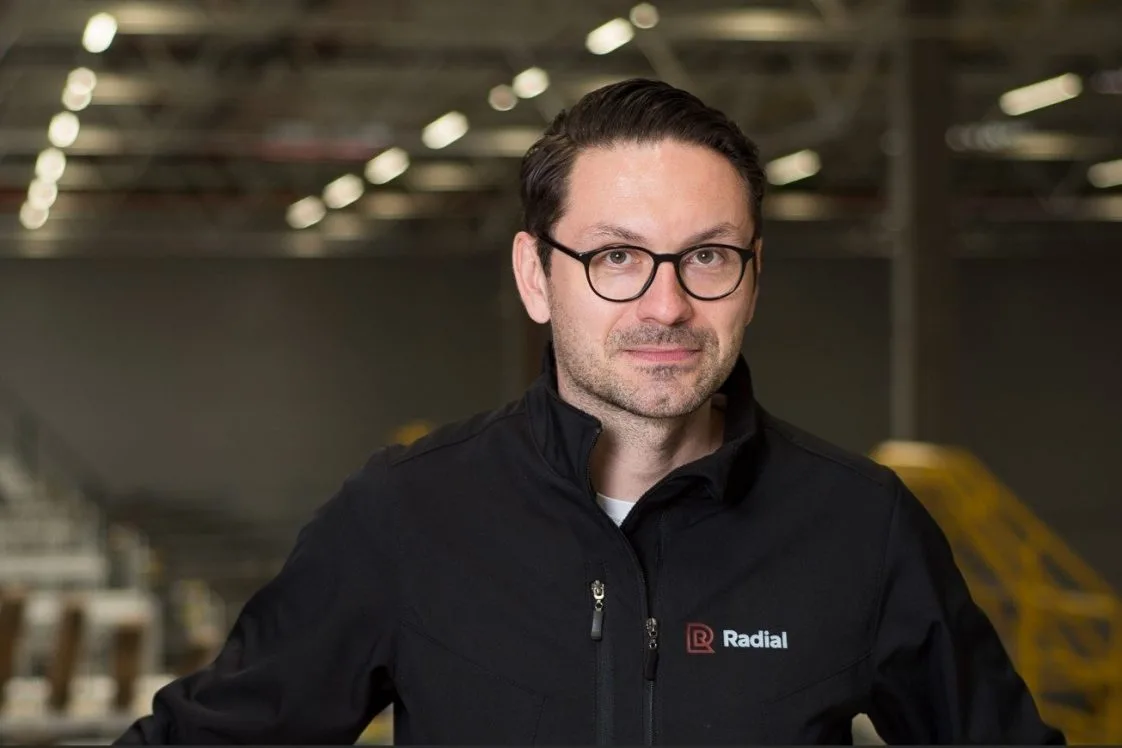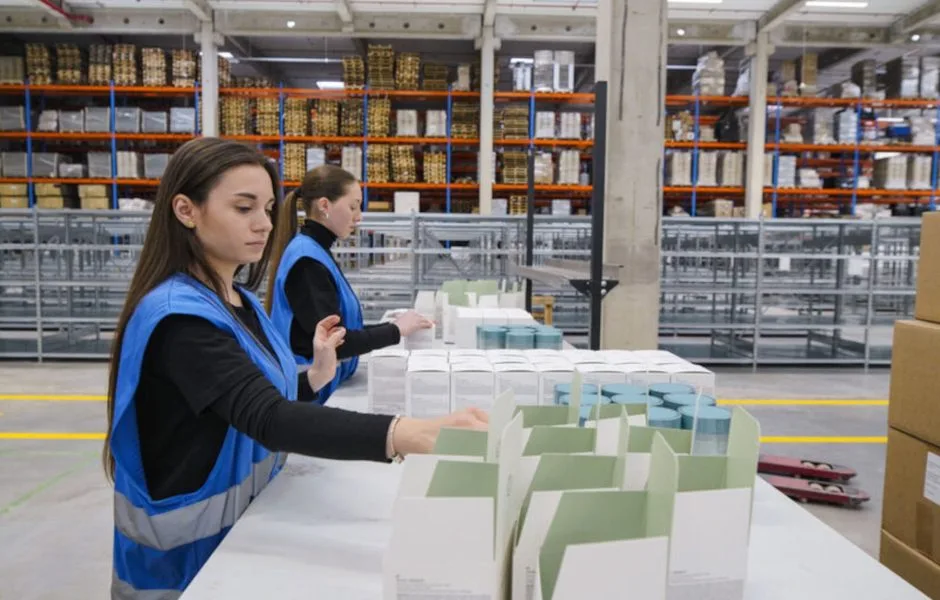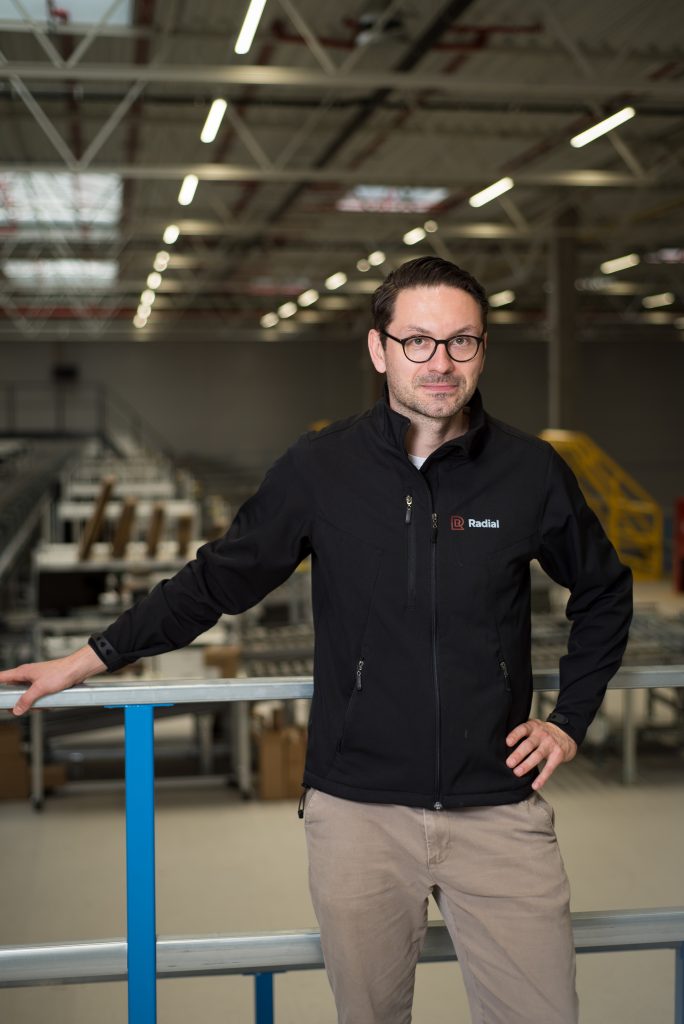It’s all about people
Karol Wojciechowski, Operations Manager at Radial Europe in Warsaw, emphasizes the importance of understanding the ‘Why’ in e-commerce fulfillment. He highlights Radial’s flexibility in handling client demands, especially for multi-level marketing companies. Karol shares a success story where they proactively solved a client’s order volume spike issue through data analysis. He stresses the importance of open communication with both clients and team members. Ultimately, Karol believes that despite automation, people are at the core of their success in building a strong community and delivering excellent service.
An interview with Karol Wojciechowski, Operations Manager at Radial Europe, Warsaw, who talks about the warehouse operations.
The Why
Karol, let’s discuss the concept of ‘Why’ as discussed in Simon Sinek’s book. How does this apply to a company like Radial Europe, focused on e-commerce fulfillment?
Karol: I believe the ‘Why’ is crucial in our approach to problem-solving and understanding our clients’ demands. It’s about having the right mindset. At Radial Europe, we focus on continuous improvement, which is a never-ending story. There’s always a gap we can adjust and correct, allowing us to bring new solutions to the table.
How does this mindset manifest in your team?
Karol: Since I joined Radial, I’ve noticed that my team is open-minded. They’re willing to deliver and constantly strive to provide better service than before. We keep asking questions and challenging the status quo. It doesn’t matter how good we were in the past; we need to set goals to be better because if we want to be competitive in the logistics market, we need to challenge ourselves daily.
Do you think there’s a way we can change the world with e-commerce fulfillment?
Karol: That’s a tough question, to be honest. I think it’s about being more open and flexible to what the future brings. The core of collaborating with our clients is really important to deliver the best possible solution for them. Sometimes, from our perspective, we might think of solutions that the client isn’t interested in. We could spend a lot of time and resources on solution design, but if the client isn’t satisfied, it doesn’t make sense. So, we should always be flexible and listen to what the client wants, then work together to bring a better solution.

Kitting services at the Radial warehouse in Warsaw, Poland
It’s about people
It sounds like you’re emphasizing the importance of client collaboration and flexibility.
Karol: Absolutely. Every single time, we should be flexible in listening to what the client wants. Then we can work together to bring a better solution. It’s not just about having automated processes – although we’ve made massive steps in that direction. At the end of the day, no matter what kind of equipment you have, it’s still about people.
We often tell new customers that we’re masters of personalization and can customize any solution. What’s the actual difference between Radial and our competitors?
Karol: The key difference lies in our value-added services. For instance, even if the warehouse operations are fully automated, we still handle kitting and labeling manually because we prepare sets with many different SKUs. We’re extremely flexible with our standardized processes, adapting to client events and changing demands.
We also excel in serving direct selling, or multi-level marketing, companies, which often struggle with forecasting. We’re flexible in dealing with peaks and low seasons, sometimes handling unexpected spikes in volume. Our goal is always to help our clients grow, no matter the challenges.
Can you tell me a bit about your role and team structure?
Karol: I report to Thomas, the site manager, and Omar, the chief of operations. I manage the classic part of the warehouse, with eight team leads reporting to me, including one responsible for client service. So we’re not just warehouse operations – we’re also the first point of contact for clients.
Listening to the client
Do you think your team members share the same ‘Why’, the same vision that we have?
Karol: We’ve made significant progress in the last year and a half in changing our mindset. We understand that the core of our business is our clients – we can’t exist without them. It’s about being open-minded and listening to the client. That’s how we fulfill orders effectively.
Role models
Since you joined, who has inspired you the most?
Karol: Hans, the former chief of operations, was a huge inspiration. Omar, the current chief of operations, has also been influential. These two are the most creative people I’ve worked with, and they’re a big reason why I joined Radial. Hans was a brilliant role model during my interview, which convinced me to join.
I try to work the same way with my team – supporting them, establishing proper daily routines, and focusing on data. We have board meetings where we listen to employee suggestions for improvements. It’s not about asking what their problems are but how we can improve processes and remove obstacles. You can’t do this just sitting behind a computer—you need to be out there, seeing the processes firsthand.
Taking the initiative
Karol, can you share a success story or customer story with us?
Certainly. One of our largest clients, a direct-selling company, had a unique challenge. They have an “auto ship” program that caused a massive volume increase four times a month. Usually, we’d handle about 1,000 orders daily, but during auto ship, it would spike to 14,000 orders in one hit.
After I joined the company, we tackled this challenge head-on. We conducted an ABC analysis, identifying the high-runners. This allowed us to prepare these items in advance, as we knew the structure of the orders. When the orders appeared in the system, we were already prepared. It was a win-win situation, improving our productivity significantly.
We also utilized slower days to prepare for these spikes. The volume difference between Monday and Friday is like day and night, so we used the slower days to get ahead. As a result, we were able to ship all orders on time, meeting our SLAs.
So you conducted this ABC analysis on your initiative, without the customer requesting it?
Yes, that’s correct. We had access to all the data in our system, so we took the initiative to change how we worked with this data. We discovered that only 20% of the SKUs were responsible for more than 80% of the total volume, and most of these were single-unit orders.
This approach became the first best practice we shared across Radial Europe. We have continuous improvement meetings where we share our knowledge, know-how, and pro tips across operations. This was the first such practice.
That’s a great example of proactive problem-solving. On a broader note, how we can make people’s lives a bit better through our work?
From my point of view, it’s about creating an environment where people feel comfortable sharing ideas or raising concerns. We’re open-minded – it’s not just about punching in and out of work. I believe our team members have a massive impact on their own daily routines, and we encourage them to speak up if anything is bothering them. Ultimately, I think it’s all about people. As I said before, you can have automated warehouse operations, but it’s still operated by people. If you don’t have good relationships with your team, it can’t be just about the features or technology. It’s more about the people because that’s what builds a strong community. This approach not only improves our operations but also contributes to making people’s work lives better.

Karol Wojciechowski, Operations Manager at Radial Europe, is an experienced Warehouse and Logistics Manager with a strong focus on E-commerce and Lean Green Belt® methodologies.
Karol is highly organized, process-driven, and detail-oriented, with a proven ability to deliver operational solutions to complex logistical problems.
He holds postgraduate degrees in Logistics Management and Digital Supply Chain from Kozminski University and WSB University.
